#surah 12
Explore tagged Tumblr posts
Text
He said, "I will address my sorrow and grief only to Allah"
-Surah Yusuf (12:86)
10 notes
·
View notes
Text
Surah Yusuf Benefits in Urdu
سورۃ یوسف کی فضیلت اور فوائد سورۃ یوسف قرآن کریم کی ایک نہایت پرحکمت اور دلنشین سورت ہے، جو نبی یعقوب علیہ السلام کے فرزند یوسف علیہ السلام کے احوال و واقعات پر مشتمل ہے۔ اس سورت کو “احسن القصص” یعنی بہترین کہانی کہا گیا ہے، کیونکہ اس میں صبر، ایمان، تقویٰ، عزم، اور اللہ پر توکل جیسے اہم مضامین کا ذکر ہے۔ یہ سورت پڑھنے اور اس پر غور و فکر کرنے سے کئی روحانی اور دنیاوی فوائد حاصل ہوتے ہیں۔ سورۃ…
#Holy Quran#In Urdu#Quran#quran majeed#Quran Sharif#Surah#Surah no 12#Surah Yusuf Benefits in Urdu#Yusuf
0 notes
Text
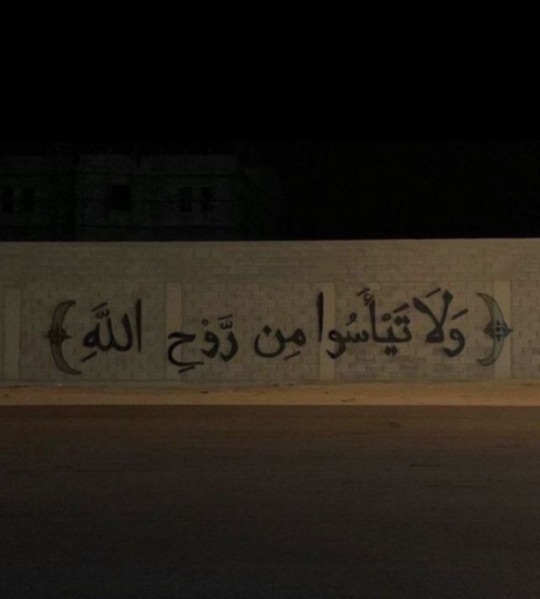
وَلَا تَايْـَٔسُوْا مِنْ رَّوْحِ اللّٰهِ ؕ اِنَّهٗ لَا يَايْـَٔسُ مِنْ رَّوْحِ اللّٰهِ اِلَّا الْقَوْمُ الْكٰفِرُوْنَ
"...and despair not of relief from Allāh. Indeed, no one despairs of relief from Allāh except the disbelieving people." [Surah Yusuf 12:87]
687 notes
·
View notes
Text
List of duaas
1. Ya Allah grant me the companionship of Prophet sallallahu 'alayhi wa sallam, his family and the Sahaba's in Jannathul Firdous al 'áala.
2. Ya Allah make me and my family from amongst the sabiqoon you mention of in Surah Al Waqi'ah. Let the light of our imaan emanate from our chest and from our right hand side.
3. Ya rabb, make me of those who are patient and obedient to You and to my parents.
4. Ya Allah make me of the few You love, You Pardon and You shade on a Day when there is no shade but from Your Majestic Arsh.
5. Oh my Lord, increase me in Yakeen and Tawakkul in you. Let there be no doubt in my belief in Your Oneness, Your Majesty and Power.
6. Ya Rahman, shower your Mercy upon me and save me from disgrace on the Day of Reckoning.
7. Ya Allah Al Wali - The Protecting Friend, protect us from hearts that are not humble, tongues that are not wise, and eyes that have forgotten how to cry.
8. Ya Allah, increase me in Sadaqa-e- Jariya. May the legacy of my good deeds be never-ending.
9. Ya Rabb, perfect my Deen and my Worship. Save me from Faahisha and let me complete half of my Deen with someone whose heart is attached to you.
10. Ya Allah accept my good deeds and increase me in reward and Your Mercy. Wipe away my sins and pardon me completely.
11. Ya Allah, when I die, let my soul and my record of Deeds be with the Illiyeen. Grant me and my loved ones shade under your throne when there will be no shade but yours.
12. Ya Allah grant me, my parents, and family guidance, steadfastness and increase us in Imaan and taqwa. Keep me and my loved ones away from major and minor sins and from everything that earns your displeasure.
13. Ya Razaq increase me in my love for You and Your Prophet sallallähu 'alayhi wa sallam.
14. Ya Jabbar forgive me and my loved ones and increase us in Your Blessings and Provisions.
15. Ya Khaliq lead me to more opportunities to do good and seeking Your Pleasure. Help me expand my knowledge with sincerity and ikhlas.
16. Ya Wahhaab, Purify my intentions for Your Sake alone and let me not show off or take false pride. Save me from arrogance, pride, showing off and reminding of favors.
17. Oh my Creator and Sustainer, do not leave me alone. Bless me with a righteous spouse and children who will be the coolness of our eyes. Fill our hearts with a pure love that is pleasing to you. Bless us with spouses who will guide us towards your pleasure and with whom we will spend an eternity in Jannatul firdous al'aala.
18. Oh my Lord, make me of those who are patient and obedient to You and to my parents.
19. Ya Latfeef, save me from the Fitnah of Dajjal. And save me from becoming a fitna for others
20. Ya Ghafoor, save me and my loved ones from the punishment of the grave and the punishment of the Hell Fire.
667 notes
·
View notes
Text
And when affliction touches man, he calls upon Us, whether lying on his side or sitting or standing; but when We remove from him his affliction, he continues [in disobedience] as if he had never called upon Us to [remove] an affliction that touched him. Thus is made pleasing to the transgressors that which they have been doing.
Surah Yunus Ayah 12
Reciter: Abdul Rahman Mossad
#quranverses#quran kareem#quraan#holy quran#quran#quran ayah#quranquotes#muslim#allahﷻ#allahuakbar#believeinallah#allah#allahplans#islam#muhammadﷺ#allah is merciful#islamicreminders#islamicquotes#islamic#deenemaan#deenoverdunya#repentance
144 notes
·
View notes
Text
So ˹I am left with nothing but˺ beautiful patience! I trust Allah will return them all to me. Surely He ˹alone˺ is the All-Knowing, All-Wise.
—Qur’an | Surah Yusuf 12:83
#islamic#islam#islamdaily#islamic quotes#muslim#muslimah#islamicreminders#islamicquotes#islamic posts#islamislove#muslim reminders#muslim reminder#muslim ummah#dawah#deenislam#deenoverdunya#dua#prayer#hadith#prophetmuhammadﷺ#allahﷻ#allah#allahswt#allahuakbar#quran ayah#quran kareem#quran#holy quran#quraan#quranquotes
67 notes
·
View notes
Text

La Mode nationale, no. 52, 26 décembre 1896, Paris. No. 15. — Costume genre tailleur. Bibliothèque nationale de France
No. 15. — Costume genre tailleur en drap satin bleu amiral. Jupe demi-large garnie devant de tresse de laine noire avec motifs de soutache dans le bas posés sur transparent rouge antique.
Boléro fermant devant, très court, garni de tresse et de motifs sur transparent rouge antique. Chemisette de surah rouge plissé. Ceinture de satin noir. Chapeau de feutre noir avec drapé de velours coquelicot. Aigrette de plumes de coq.
—
No. 15. — Tailor-made suit in admiral blue satin cloth. Half-wide skirt trimmed in front with black wool braid with soutache patterns at the bottom laid on antique red transparent fabric.
Bolero closing in front, very short, trimmed with braid and patterns on antique red transparent fabric. Pleated red surah blouse. Black satin belt. Black felt hat with poppy velvet drape. Cock feather aigrette.
—
Matériaux: 6 mètres de drap, 12 mètres de petit taffetas rouge antique pour doublure, 1m,50 de surah pour la chemisette.
#La Mode nationale#19th century#1890s#1896#on this day#December 26#periodical#fashion#fashion plate#description#bibliothèque nationale de france#dress#suit#gigot
71 notes
·
View notes
Text
ramadan 30 day challenge
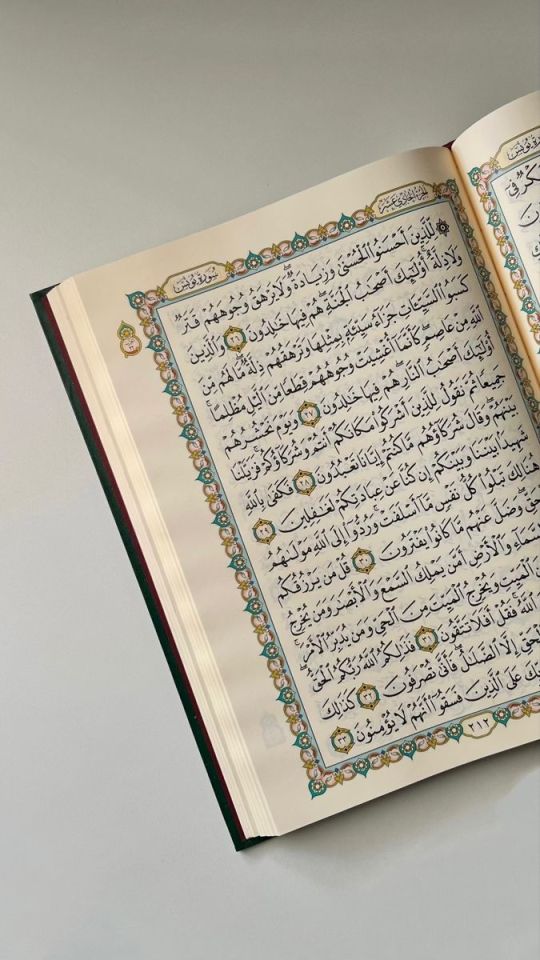
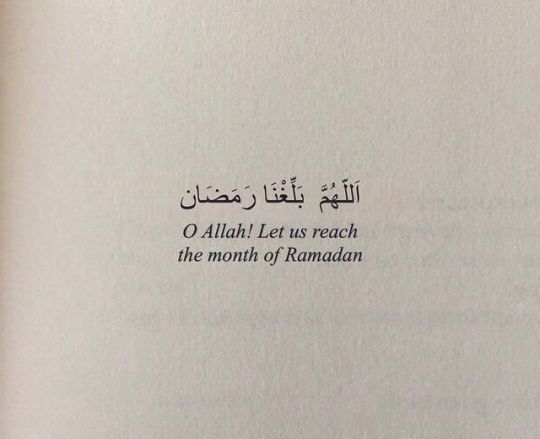
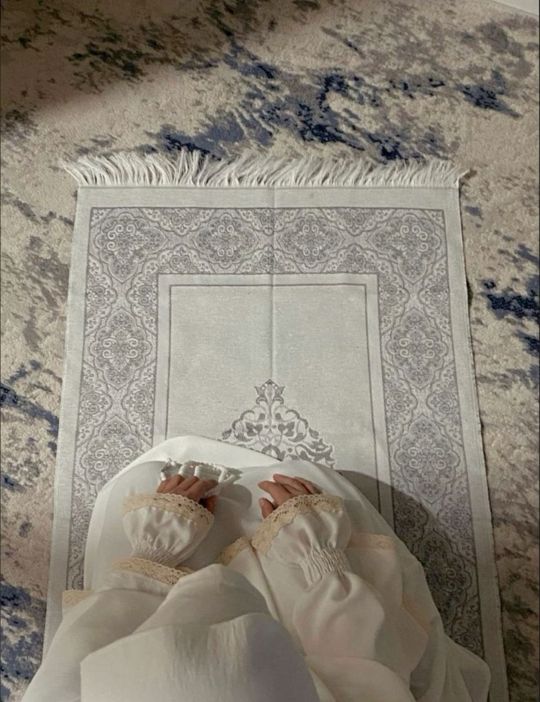
introducing the ramadan 30 day challenge!
I made this challenge in the hopes of catering to as many people as I can - so, regardless of anyone's home situation, health, money, whether or not you live near a mosque or a community etc, I think it is somewhat do-able or adaptable for all! you can access anything you need for this (verses/surahs from the Qur'an for eg) online. I also know that for some people (depending on countries etc), ramadan is either 29 or 30 days, so it's fine to finish on the 29th day if necessary.
if you miss a couple days as well (or end up seeing this post halfway through ramadan), just pick up from whatever day of ramadan it is!
it starts off easy and gets harder as you go along! i'm also going to be doing this ramadan challenge and posting my own updates on here, Insha’Allah! if you do this too, please do tag me because I would love to see how people are getting on! ♡ here it is:
recite surah ikhlas 3 times
recite durood sharif 3 times
read Qur'an after asr
recite the 3 Quls (last 3 surahs of the Qur'an) in the evening/before sleeping today
listen to an islamic podcast
write down 5 things you are grateful to Allah for on paper or phone notes app
istighfar 100 times
read all of surah mulk before bed
wake up for tahajjud and pray (at least) 2 rakaats
learn 5 names/attributes of Allah سُبْحَٰنَهُۥ وَتَعَٰلَىٰ
do something nice for somebody else - can even be very small and will still be rewarded for it
wear your favourite abaya/thobe/modest clothing for every salah today. look your best for Allah سُبْحَٰنَهُۥ وَتَعَٰلَىٰ in your prayer like you would to go to a special event
give some (charity) sadaqah (create a sadaqah jar/box!)
read the last 2 verses of surah baqarah before sleeping
make a du'a for your friends and family - name them and pray for something specific for each of them
read all of surah Ya Sin after fajr
pray 2 nafl rakaats (voluntary prayer) today after the 2 sunnah rakaats of zuhr
no backbiting/gossiping about anyone at all and 2 nafl rakaats (voluntary prayer) if you do
pick a surah from the Qur'an and read the commentary for each verse
memorise the dua to recite on laylatul qadr اللَّهُمَّ إِنَّكَ عَفُوٌّ تُحِبُّ الْعَفْوَ فَاعْفُ عَنِّي Allahumma innaka 'Afuwwun, tuhibbul 'afwa, fa'fu 'anni "O Allah, You are indeed Forgiving and love to forgive, so forgive me."
donate to a charity (for palestine!!). even the smallest amount will be beneficial + rewarded by Allah
recite ayatul kursi after each 5 fard (obligatory) salah
pray all the 12 sunnah today: 2 rakaats before Fajr; 4 rakaats before zuhr and two rakaats after; 2 rakaats after Maghrib; and 2 rakaats after Ishaa
pray (at least) 2 rakaats of taraweeh (either at the mosque or at home by yourself/with family!)
pray 2 rakaats of duha (optional) prayer - it is between 15 minutes after sunrise until zuhr time. (not after zuhr!!)
recite subhanallahi wabihamdi, subhanallahil adheem 100 times - (Glory be to Allah and all praise is due to Him, glory be to Allah, the Great)
be extra modest today (tailored to you. wear hijab outside if you don't, or wear your loosest outfit or lower your gaze completely (including lowering it on social media) today etc. whatever being extra modest is for you, do that today).
pray on time, no procrastination or delays. check what local time each prayer is for you and pray then (unless you're praying at the mosque!)
istighfar x1000 times
pray some of the nawafil ON TOP OF all the sunnah prayers that accompany the 5 obligatory prayers: - 2 rakaats of duha prayer - 2 rakaats after the 2 sunnah rakaats of zuhr - 4 rakaats before asr - 2 rakaats after the 2 sunnah rakaats of maghrib - 2 rakaats after the 2 sunnah rakaats of ishaa (extra challenge: wake up for tahajjud too)
level extreme: if you want an extra extra challenge, you can continue doing each one every day as you go along. so day 1 would be recite surah ikhlas 3 times and day 2 would be recite surah ikhlas and durood sharif 3 times, day 3 would be recite surah ikhlas and durood sharif 3 times and read Qur'an after asr... and you get the gist. if you do this, good luck on day 30 when you have 30 things to do lol
note: giving sadaqah (charity) can be adapted if donating money is a struggle - for eg, doing dhikr on behalf of somebody else can count as sadaqah. click here for more info on this.
may Allah make this challenge easy for whoever intends to participate and let the deeds indeed be multiplied by 100 this ramadan and forgive us for our shortcomings, Ameen ♡
#ramadan challenge#ramadan#islam#muslim#ramadan series#religion#allah#sabrgirl#quran#prayers#islamic#muslims#sunnah#ramadan tips#ramadan mubarak
251 notes
·
View notes
Text
Just ask for forgiveness.
A man complained to Hasan al-Basri about a drought.
So he said to him: Pray to Allaah for forgiveness.
Another man complained to him of poverty.
So he said to him: Pray to Allaah to forgive you.
Another man said to him: Pray to Allaah to bless me with a child.
He said: Pray to Allaah for forgiveness.
Another complained to him that his garden was dry.
He said to him: Pray to Allaah for forgiveness.
We asked him about that and he said: This is not my personal opinion.
For Allaah says:
Ask forgiveness from your Lord, Indeed, He is ever a Perpetual Forgiver;
He’ll send rain to you in abundance.
And give you increase in wealth and children,
and bestow on you gardens
and bestow on you rivers.
Surah Nuh (v. 10-12)
Source: Tafsir al-Qurtubi (v. 18, pp. 301-302)
20 notes
·
View notes
Text

“And do not despair of relief from Allah. Indeed, no one despairs of relief from Allah except the disbelieving people.”
— [Surah Yusuf, 12:87]
#islamdaily#islam#islamic#quranandsunnah#quranquotes#islam help#islamislove#islamicpost#al quran#convert to islam
16 notes
·
View notes
Text
How do we calculate all years of not doing sajdah tilawah? Also how many sajdah tilawah in quran , please clarify, will our quran reading be accepted until now if we did not do sajdah?
Answer
In the Name of Allah, the Most Gracious, the Most Merciful.
As-salāmu ‘alaykum wa-rahmatullāhi wa-barakātuh.
There are 14 Sajdah Tilawat in The Quran which are indicated by the word ‘As Sajdah’ shown in the margin and also on the specific verse. The 14 verses are as follows,
1) Surah Al A’Raf (7) Ayat 206
2) Surah Al Ra’d (13) Ayat 15
3) Surah Al Nahl (16) Ayat 50
4) Surah Bani Israeel (17) Ayat 109
5) Surah Maryam (19) Ayat 58
6) Surah Al Haj (22) Ayat 18
7) Surah Al Furqan (25) Ayat 60
8) Surah Al Naml (27) Ayat 26
9) Surah As Sajdah (32) Ayat 15
10) Surah Saad (38) Ayat 24
11) Surah Hameem Sajdah (41) Ayat 38
12) Surah Al Najam (53) Ayat 62
13) Surah Inshiqaq (84) Ayat 21
14) Surah Al Alaq (96) Ayat 19
When one recites or hears any of these verses, it is necessary (wajib) to perform sajdah tilawat. One should try to perform the sajdah as soon as possible. In the case that one forgot, it would remain necessary (wajib) to perform it.
The procedure of Sajidah Tilawat is in the state of Wudhu stand up and say: ‘Allahu Akbar’ without raising the hands; then go straight down into Sajdah; read ‘Subhaana Rabbiyal A’ala‘ three times; arise out of Sajdah and ‘whilst standing up say; ‘Allahu Akbar’. There is no Tasleem (Salaam) after standing up. Although it is better to begin and end this Sajdah from a standing position, it is also correct to commence and terminate it from the Jalsa (sitting) position.
Sajdatut Tilawat is prohibited whilst the sun is rising, precisely at noon, and from the time the color of the sun changes before sunset until the sun has fully set.
You should average the amount of Quran you read without doing Sajdah Tilawah and accordingly perform the Sajdahs.

#islam#quran#islamic#muslim#islamicquotes#pakistan#islamic group#muslim community#muslim countries#sajda shukr#sajda tilawat#istanbul#allah#arabic dua#ramadan#jumahmubarak#tahujjud#prophet ﷺ#hadithreminder#friday jummah#surah khaf
20 notes
·
View notes
Text
Why The Quran Asks Us To Ponder
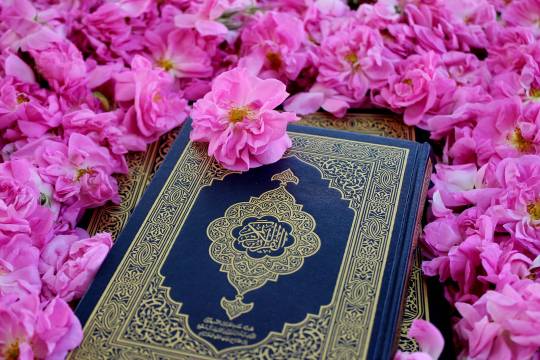
Islam emphasises reflection, urging believers to use reason and contemplation to grasp the magnificence of creation and the purpose of life. The Quran, revealed to be a guidance for humanity, frequently calls us to use our intellect and ponder over the signs of Allah’s creation, encouraging deeper faith, gratitude, and understanding.
Below, we explore the Quran’s repeated call to contemplation, the signs in Allah’s creation, and the wisdom behind this reflection.
The Call to Ponder: A Divine Invitation
The Quran mentions the act of pondering 13 times, inviting readers to think beyond surface realities. Reflection in Islam is not just intellectual but also spiritual, helping people develop a connection with Allah by appreciating the beauty and precision of His creations. The Quran often presents questions that awaken hearts and minds:
“Do you not think?” (Surah Al-Baqarah, 2:44)
“Will you not then ponder?” (Surah Al-Baqarah, 2:219)
“Do they not reflect upon the Quran?” (Surah An-Nisa, 4:82)
“Will they not contemplate within themselves?” (Surah Ar-Rum, 30:8)
“So reflect, O people of insight.” (Surah Al-Hashr, 59:21)
“Do they not contemplate the Word?” (Surah Al-Mu’minun, 23:68)
“Do they not reflect upon the stories?” (Surah Yusuf, 12:111)
“Will you not ponder?” (Surah Al-Anaam, 6:50)
“In that are signs for those who reflect.” (Surah Ar-Rum, 30:21)
“For those who think and reflect…” (Surah Al-Zumar, 39:42)
“Do they not reflect on what Allah has created?” (Surah Al-A’raf, 7:185)
“Have they not traveled through the land to reflect?” (Surah Al-Hajj, 22:46)
“Do they not reflect on the heavens and the earth?” (Surah Ghafir, 40:57)
The Quran draws our attention to the vastness and intricacy of the universe as signs of Allah’s creative power:
“Indeed, in the creation of the heavens and the earth, and the alternation of the night and the day, are signs for those of understanding.” (Surah Aal-Imran, 3:190)
From the sky to the earth, the Quran teaches that every element of nature reflects divine wisdom. The harmony in ecosystems, the precise orbit of celestial bodies, and the perfect design of living beings all bear witness to Allah’s knowledge and control.
Prophet Muhammad (ﷺ) said: “Think about the creation of Allah, but do not think about the essence of Allah, for you will never be able to comprehend it.” (Sunan Abi Dawood, 4726)
Islam invites us to appreciate Allah’s signs but warns against delving into matters beyond human understanding, such as Allah’s essence.
Gratitude and Faith through Reflection
Contemplation naturally leads to gratitude. When we reflect upon the intricacies of creation, we recognizse our dependence on Allah’s blessings and mercy, increasing our faith and humility. The Quran says:
“If you were to count the favours of Allah, you could never enumerate them. Indeed, Allah is Forgiving and Merciful.” (Surah An-Nahl, 16:18)
Reflection transforms routine experiences — such as observing the sunrise or feeling the breeze — into moments of spiritual awareness. Gratitude, in Islam, is not merely verbal but is shown through worship, kindness, and responsible stewardship of the earth.
Islam’s Encouragement to Seek Knowledge
Islam’s emphasis on reflection fosters a deep love for learning and personal growth. The first revealed words of the Quran were:
“Read in the name of your Lord who created.” (Surah Al-Alaq, 96:1)
This call to read, understand, and seek knowledge underscores the importance of intellectual development in Islam. The Prophet Muhammad (ﷺ) said:
“Seeking knowledge is an obligation upon every Muslim.” (Ibn Majah, Hadith 224)
The act of pondering leads to acquiring knowledge, developing moral character, and fulfilling our purpose as vicegerents of Allah on earth.
Islamic Science and Innovation: A Legacy of Enlightenment Exploring the Golden Age and Pioneering Contributions in Astronomy and Medicinemedium.com
The Quran and Sunnah guide believers to reflect on both scripture and creation, allowing them to develop a profound connection with Allah. Through contemplation, one not only understands life’s purpose but also appreciates the beauty, wisdom, and mercy of God. This reflection leads believers to live mindfully, with gratitude and humility, striving to embody the teachings of Islam.
Emphasis of Good Character and Manners in Islam Islam is not just a set of rituals or beliefs; it is a comprehensive way of life that emphasises the importance of good…medium.com
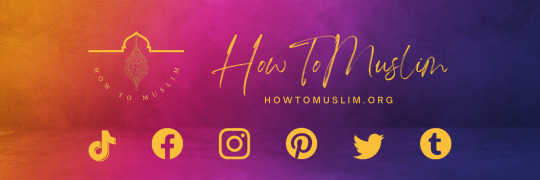
Learn more about Islam here: https://www.howtomuslim.org
47 notes
·
View notes
Text

Surah Al-Mulk – Ayah 12
"Indeed, those who fear their Lord unseen will have forgiveness and a great reward." (Surah Al-Mulk 67:12)
12 notes
·
View notes
Text
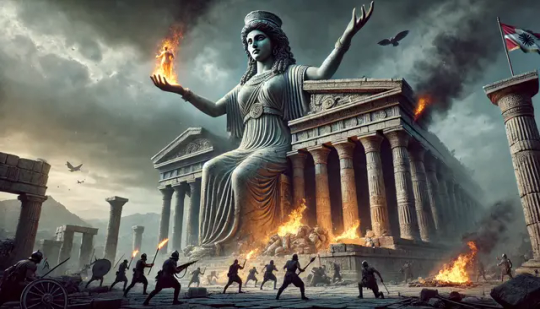
"The Forgotten Mother: How Erasing the Divine Feminine Corrupted Spiritual Truths and Empowered Patriarchy"
The Suppression of the Divine Feminine:
I remember when they tore down her image. The Asherah pole stood tall beside Yahweh’s altar, a symbol of the divine mother’s nurturing presence. But Josiah’s men came with fire and iron, hacking it to splinters. They said she was an abomination, that Yahweh alone should be worshipped. But we knew better. The mothers whispered her name in secret, praying for fertility and protection. They could burn her symbols, but they couldn’t erase her from our hearts.
— A witness to King Josiah's reforms, 2 Kings 23:6
I was a priestess of Astarte. We danced under the moon, honoring the goddess of love and war. But then the men came, calling her a harlot, twisting her name into a curse. They said her temples were dens of sin, that our rites were wicked. They turned the goddess into a demon, erasing her from the heavens and casting her into hell. Our power was stolen, our voices silenced. But the goddess still lives in the blood of every woman who remembers.
— A priestess reflecting on the demonization of Astarte.
Sophia’s wisdom flowed through us, guiding us toward the light. But when the Church fathers gathered their councils, they cast her aside. They called heretical the Gospels that spoke of her—Pistis Sophia, The Sophia of Jesus Christ. They said wisdom belonged to men alone, that divine truth must come through their hands. They feared the light she offered because it made their authority fragile. So they buried her words beneath the weight of their dogma.
— A Gnostic teacher witnessing the suppression of Sophia in early Christianity
I was given to him like a goat or a piece of land. My father struck the deal, and I was his prize. “Your desire shall be for your husband, and he shall rule over you,” they said. I had no voice, no choice. The scriptures made it law: Exodus 20 lists me as property in the same breath as oxen and donkeys. They cloaked my chains in holy words.
— A woman reflecting on her role under the laws of Exodus 20:17 and Genesis 3:16
I heard the words from the pulpit: “Let your women keep silent in the churches, for it is not permitted unto them to speak.” My heart burned, but my lips stayed shut. They said I was born from man’s rib, destined to serve and obey. Paul’s letters—Corinthians, Timothy—became my shackles. The men claimed divine order, but I knew it was fear. Fear of the power they couldn’t control.
— A Christian woman silenced by Pauline doctrine, referencing 1 Corinthians 14:34-35 and 1 Timothy 2:11-12
When he took me as his fourth wife, I knew my fate. The Qur'an allowed it, as long as he treated us “fairly,” but fairness meant nothing. My worth was measured in obedience, my defiance punished by law. “Men are in charge of women,” they said, and Surah An-Nisa sealed my fate. I was his possession, veiled and hidden, my voice lost beneath layers of scripture.
— A woman reflecting on her subjugation under Islamic law, referencing Surah An-Nisa 4:34
While the narratives above are a work of fiction, the events and doctrines mentioned are historically documented.
Here’s a quick breakdown:
1. Asherah Suppression:
Historical Fact: The Bible records King Josiah’s reforms in 2 Kings 23:6, where Asherah poles were destroyed to consolidate monotheistic worship of Yahweh. Archaeological finds, like inscriptions from Kuntillet Ajrud, mention “Yahweh and his Asherah.”
2. Demonization of Astarte:
Historical Fact: Archaeological evidence includes the discovery of nude female figurines in ancient Israelite sites. These figurines, often associated with goddesses like Astarte.
Additionally, in the biblical narrative, king Solomon introduced the worship of the Phoenician goddess Astarte, referred to as "Ashtoreth" (Ashera) in the Masoretic text.
3. Suppression of Sophia in Gnosticism:
Historical Fact: Sophia is central in Gnostic texts like Pistis Sophia and The Sophia of Jesus Christ, which were removed and banned as heretical after the Council of Nicaea (325 CE) and other early Church councils that defined orthodoxy.
4. Women as Property in the Bible:
Exodus 20:17 lists a neighbor’s wife among possessions like a house, servants, and livestock. Genesis 3:16 establishes the hierarchical relationship post-Eden.
5. Pauline Suppression of Women:
1 Corinthians 14:34-35 and 1 Timothy 2:11-12 explicitly instruct women to remain silent and subordinate in church, influencing Christian gender roles for centuries.
6. Islamic Suppression of Women:
Surah An-Nisa 4:34 outlines male authority over women, permitting men to discipline their wives. The Qur'an allows up to four wives if treated justly, though interpretations and implementations vary widely across cultures and history.
The removal of goddesses like Asherah, Sophia, and Shekinah from spiritual traditions wasn’t accidental—it was systematic. Archaeological evidence, such as inscriptions from Kuntillet Ajrud in ancient Israel, shows early Hebrews worshipped Yahweh and his Asherah. Yet, over time, Asherah was erased from sacred texts, her presence scrubbed from worship as monotheism took root. The Deuteronomistic reforms under King Josiah (2 Kings 23) describe the destruction of Asherah poles and temples, further evidence of the active removal of the goddess from public worship.
Similarly, Sophia, the embodiment of divine wisdom, is central in Gnostic texts like The Sophia of Jesus Christ and Pistis Sophia, but these were labeled heretical by the early Church and excluded from the canonical Bible. In mainstream Christianity, the divine feminine became fragmented or wholly absent, replaced by male-centric doctrines. Even the Shekinah, a feminine presence representing divine immanence in the world, was relegated to the fringes of mystical Kabbalistic thought rather than mainstream theology.
Despite this suppression, echoes of the divine feminine persist, particularly in Kabbalah. The Shekinah is still recognized as the feminine aspect of God’s presence, dwelling within Malkuth, the Sephirah representing the material world. But this divine connection was corrupted by the Church’s focus on material domination, wealth accumulation, and earthly power rather than spiritual enlightenment.
In part two of this chapter we will discuss how the corruption of this Devine connection is apparent within the church and manifest itself on each one of the Qliphoth.
As Always I would like to give a sincere thanks to my newest Patreons Mary Grassrope, Dimmy Love, and Joselyne Galaviz and of course anyone who has or is supporting my work. I love you all. If you would like to be mentioned in the comments just follow the link below and become a Patreon. Even if you can only pledge one dallar. It all really helps to keep the content coming.
Patreon.com/themadwitch
#DivineFeminine#goddess worship#SacredFeminine#ancientwisdom#feminist spirituality#hidden truths#herstory#hermetic#hermetic philosophy#hermeticism#kabbalah#magick#occult#pagan#ancient wisdom#witches#conspiracy theories
19 notes
·
View notes
Text
And why should we not rely upon Allāh while He has guided us to our [good] ways. And we will surely be patient against whatever harm you should cause us. And upon Allāh let those who would rely [indeed] rely."
Surah Ibrahim Ayah 12
#quran verse#quran recitation#quraan#quran#quran ayah#quranquotes#quran kareem#qiyamah#muslim#allahuakbar#believeinallah#allah#allahplans#allahﷻ#islam#quranverses#muhammadﷺ#deenemaan#deenoverdunya#repentance#alhamdulillah#praise allah#allah is merciful#islamicquotes#islamic#islam4 life#islamdaily#islamicpost#islamicreminders#islampost
51 notes
·
View notes
Text
Allah is the One Who created seven heavens ˹in layers˺, and likewise for the earth. The ˹divine˺ command descends between them so you may know that Allah is Most Capable of everything and that Allah certainly encompasses all things in ˹His˺ knowledge.
—Qur’an Surah At-Talaq 65:12
17 notes
·
View notes